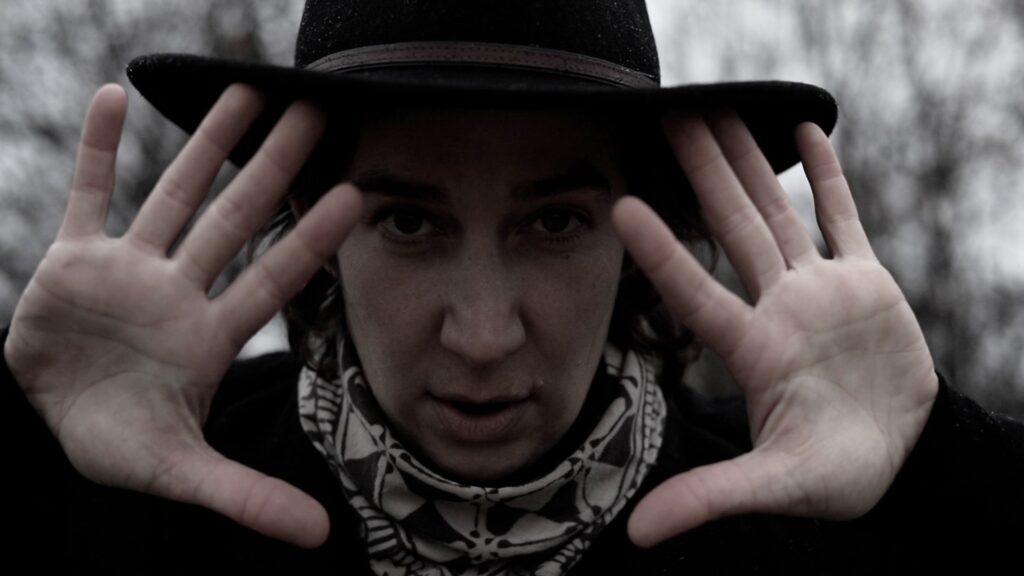The singer/songwriter Zeo Boekbinder was a Bay Area native for many years. Originally part of the sibling duo Vermillion Lies, Zeo set out on a solo career fifteen years ago and has released six studio albums since then. Their new album, Wildflower, was recently released and Zeo will be playing their first West Coast tour since the pandemic in support of it. Some of the first live shows that I ever went to were to see them in various spots around the East Bay, and this tour will be my first time seeing them since 2010. I sat down with Zeo over Zoom to ask them about their new album, the changes to their music over the years, and their approach to touring post-pandemic.
Tyler King: How are you feeling about the upcoming West Coast tour that just got announced?
Zeo Boekbinder: I’m really excited. I really, really, really miss performing. It’s felt really heavy not performing, and the reason why I wasn’t was because I didn’t feel safe because I’m still COVID-cautious. I use the word “heavy” because the last time I tried to tour I tried to be COVID-safe but the people I was on tour with agreed to some COVID safety beforehand and then changed their minds on day three and I got COVID! And that was the only time I’ve ever gotten it, but that experience made me doubt performing or touring ever again because it made me feel like I couldn’t trust this community that I had been in or trust certain people to keep me safe. And then it occurred to me, ‘What if I just reach out through my COVID-safe communities?’ We exist in various Facebook groups. Maybe instead of trying to set up a tour through my old music community or my old fan community, I do it through this new one! And the response has been so incredible. I expected maybe finding places to host three to five shows, and I think it ended up becoming fifteen or more! So it’s a real tour! [laughs]
TK: Yeah, it’s extensive.
ZB: Yeah, and it’s been the easiest tour I’ve ever booked because it’s backyards. But because it’s not going to be held in traditional venues there aren’t logistics I need to figure out and I don’t have to worry about promotion because all of the hosts are advertising it to their own COVID-safe communities. It feels really great and really supportive and I get to do my job and do the thing that I love the most in the world without compromising my safety or anyone else’s.
TK: With being conscious about COVID, did that impact the recording of your new album Wildflower? Did it make it difficult to collaborate in-person with anyone on the record, or was all of the recording done remotely?
ZB: I did work in-person with people. It can be tricky to navigate. Everybody tested every day and that was all of the safety that I could ask for or felt like I could ask for. And at the time, the tests that I had access to weren’t great, so if I was to do it today then I would have more accurate testing, but I still felt pretty good about it. But I didn’t get sick and nobody else got sick, so it ended up working out!
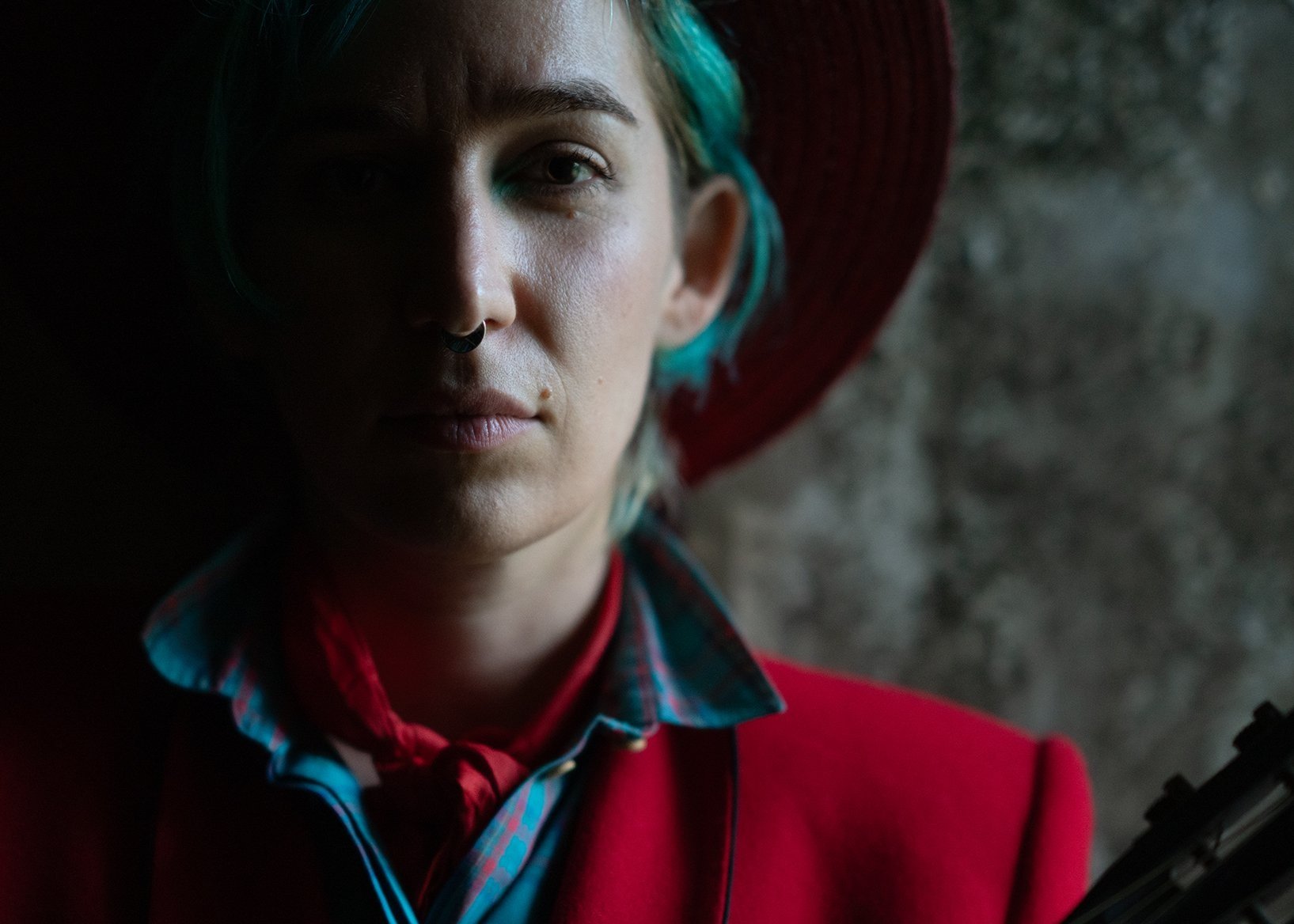
TK: Going from your first album, Artichoke Perfume, to your second album, Darling Specimens, it felt like there was a huge leap forward in terms of your songwriting. That’s something that always seems to grow album to album. What do you think the biggest difference was in your songwriting from your last album Shadows to Wildflower?
ZB: I think maybe the biggest shift was also a shift that was happening in me personally. The pandemic definitely had a big influence on it in the sense that I lost old social circles, I wasn’t touring anymore… so my world had really shifted and I think that my concern with being accepted or fitting in changed. Which isn’t to say that any of my albums “fit in,” my music is kind of weird! [laughs] But I think that was always trying a little bit to make music that people would like and would be accessible, and I think with Wildflower I let some of that go. Not completely though, I did want to record the songs of mine that people on my Patreon were responding to, so I asked my fans there to vote for their favorite songs. So I made sure to include the songs that those folks were responding to, but outside of that I just wanted to make the record that I always wanted to make and forget about radio play or what other people might want me to do.
TK: In preparation for this interview I went back and relistened to all of your albums, some of them for the first time in years. Correct me if I’m wrong, but going back to your debut Artichoke Perfume, it felt like a good half of those songs fell into the camp of the band Vermillion Lies, which you had been in with your sibling Max before going solo, and the other half felt like more personal songs.
ZB: I don’t even know if I was conscious of that at the time, but I think that that’s a good observation. Certainly a lot of the songs that made it on that album were songs that Vermillion Lies had decided not to do and I wanted a home for them. I wanted to release them and play them, but they just weren’t right for our band for one reason or the other. Largely that was because my songwriting was becoming more sincere and more personal, and we didn’t really play songs like that… not so much at least, we did a little bit. But that was difficult with Vermillion Lies because we had sort of become pigeonholed as a “joke” band.
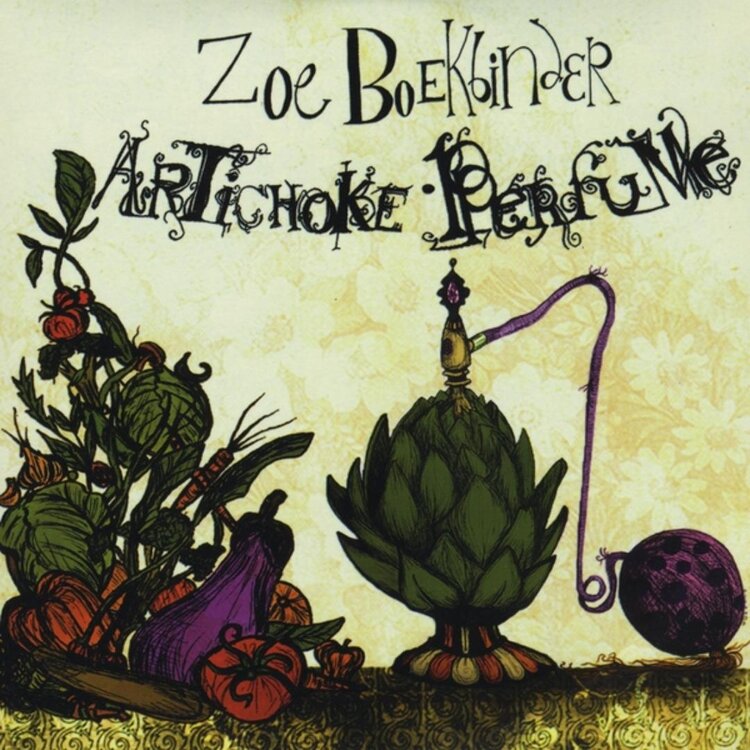
TK: Listening to Artichoke Perfume and then going straight into listening to Darling Specimens, like I said, truly feels like this giant leap forward for you as a songwriter and musician and production. On Artichoke Perfume, even the songs that are personal and are about heartbreak and things like that, they still had the whimsical feeling to them that was associated with Vermillion Lies. But then you released Darling Specimens and everything from the production to the instrumentation felt like they more matched what you were trying to say on those songs.
ZB: That really has to do with the producers that I picked for those albums. For Artichoke Perfume it was Cesar Alvarez, who was the bandleader of The Lisps, who were not quite a joke band, but they were a silly band whose music was very whimsical. And I really liked The Lisps and that was why I chose Cesar, but that was still a comfortable musical zone for me. I was stepping out from Vermillion Lies, but just a little bit. And then with Darling Specimens I worked with Shenandoah Davis, who was the producer on that album. Her music is so orchestral and so emotional, so of course that comes through on that album.
TK: Going back to Wildflower, why was it so important for you to exclusively work with women, trans, and non-binary individuals for this record?
ZB: I had had my own personal struggles in, and I hate to call it this, the “music industry.” I felt like I wasn’t being taken as seriously, my art wasn’t valued as much, and I wasn’t considered as skilled as some of the men I worked with. I would be working with a recording engineer, who is almost always a cis man, and I would say I wanted a tuba player on the song, and then the go-to session musician for that instrument, or any instrument, is almost always a cis man. So it was like, whoever ends up getting jobs in that industry, historically has almost always been cis men. If you look at statistics, it’s even more true than I thought it was. Maybe because I’m queer I’ve worked with more non-cis men than most, but then when I was looking at the statistics it was just so staggering. Music is such a part of our culture, and it reinforces and reflects that culture. It helps to create what’s acceptable to society. And unfortunately there’s a lot of popular music that’s degrading to women. Some of the most popular songs that we know and sing along to are about stalking, sexual violence, or pedophilia. If you start paying attention to these classic songs that are so good and so timeless, you go “oh no, what are these words that I’m singing?!” [laughs] So I felt we need to move the needle in order to change that culture in whatever amount we can.
TK: I definitely agree with you about all of those points. I found out sort of recently that “Let’s Get It On” by Marvin Gaye was written for his 17 year-old mistress at the time. “Mistress” isn’t the right word, that’s giving a 17 year-old girl more power than she has over a full-grown man who should know better, but so now I can’t listen to the song anymore. When you record a new album, do you go in with a prepared list of every song that’s going to make the cut, or are there happy accidents along the way that result in the creation of new songs? And did anything like that happen during the recording of Wildflower?
ZB: Sometimes there are happy accidents, but with the recording of Wildflower it was a pretty tight schedule. We recorded it in Nashville and we were only in the studio for five days.
TK: Wow!
ZB: I know! [laughs] We were tracking for three-and-a-half, and then the rest was comping multiple takes together and redoing vocals and stuff like that. The schedule was really bonkers, so there wasn’t any room for improvisation, the album really came out as planned.
TK: I mentioned earlier that you sometimes will write story-based songs, and the one on Wildflower that really stood out to me was “The Rest Of His Days.” I know that you have a history of being an advocate for prison reform-
ZB: Prison abolition. I don’t think there’s any way to reform the system.
TK: Would you be able to talk about that song a little bit?
ZB: I happened to come along the people that that story happened to through the Prison Music Project, which was an album that I made in collaboration with a lot of writers that I worked with inside of Folsom Prison. All of the songs on that album were written by people who were incarcerated there, and one of the people, Sam Brown, was talking on the phone with me one day at the prison and I told him I wanted to talk to him about restorative justice; I was doing a podcast at the time talking about that as well as just the entire prison system as a whole. So I asked him about it and he said, “You know, you should talk to my friend Lester about it instead of me.” And I guess Lester just happened to be walking by, because all of a sudden Lester’s on the phone. And these calls are timed to only fifteen minutes, there was maybe only five minutes left, and Lester just starts downloading his story to me, which is the song “The Rest Of His Days.” He was eighteen when the crime happened and he had just graduated high school. He had never done anything violent before in his life. I don’t really want to go into it because it’s pretty horrific, but if you do want to hear about it it’s on the podcast/radio show that I was doing at the time on the Prison Project website. But if you listen to the song, that’s why I don’t believe in prison or punitive justice. We need to be focused on healing and reparations, rather than more violence. Because incarcerating people is just perpetuating violence.
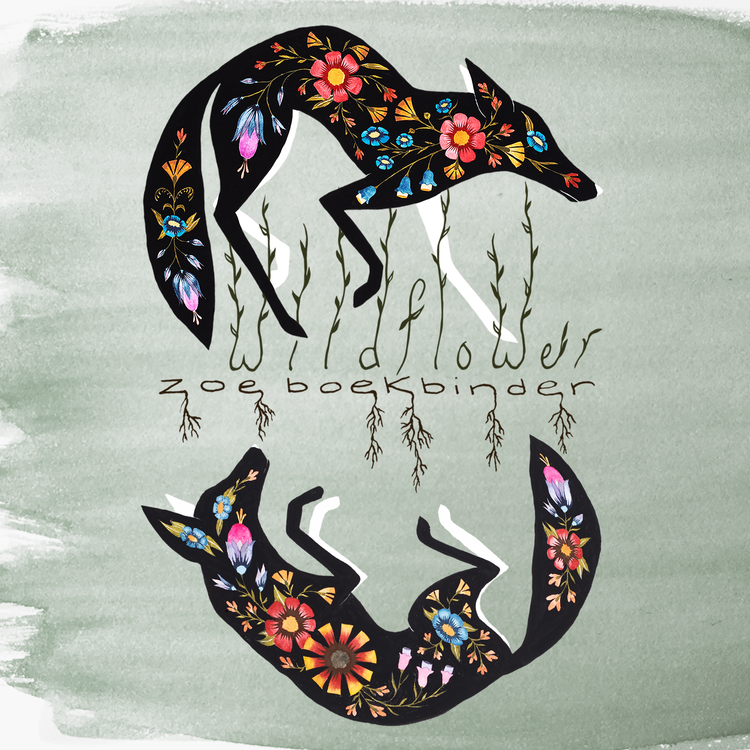
TK: How has your approach to performing live changed since your early days of performing?
ZB: I think that I only ever wanted to authentically be myself onstage and be vulnerable in that way. Vermillion Lies was so fun. It was a blast and it was awesome. I think that because I felt pigeonholed, like I said earlier, my reaction to when Vermillion Lies split was, “I’m going to get so personal, I’m going to get so vulnerable and rip my heart open onstage!” So that’s exciting for me to do onstage, but it’s also terrifying. I don’t partake in a lot of high-adrenaline activities, so performing live is my one high-adrenaline activity.
TK: Are there any songs from Wildflower that you’re most looking forward to performing, and how do you prepare playing new songs live? I remember when I used to see you you were using a looping pedal for a lot of your songs. Do you still use that?
ZB: There is a song on Wildflower that I used to loop when I played it live, “Scared To Mess It Up,” but we recorded it without any of that so I’m not using loops when I play that one live now. I do miss the loops sometimes, but that would be the only one where I would use that pedal. So this tour will just be me with a guitar. So it’ll be pretty stripped down!
TK: Were there any songs on the album that you honed and perfected through live performance? Or were most of the songs done in the studio for the first time?
ZB: Maybe half of the songs on this album are older songs that I’d already played live and had the ability to test in front of an audience. For me that’s such an important part of the process. And that’s why I asked people on Patreon to vote for which ones should make it on the album, because I don’t know what songs of mine are the most approachable or that other people connect to. As much as I want to make music for myself, I do still want people to connect to my art.
TK: If you could pick three songs on the album, what are your favorites?
ZB: “Cover Up The Moon” is my favorite, but it wasn’t before we recorded it. It’s largely because of the production, I just think it came out sounding so dreamy. And then next would be the song that I love playing the most, which is “I Tried To Be Good.” I still feel really connected to that song. And then maybe “Mycelia.”
TK: That’s actually my favorite song on the album.
ZB: Thank you!
TK: The first time I listened to it and the vocal melody came in I was like, “Yes, they’re back!”
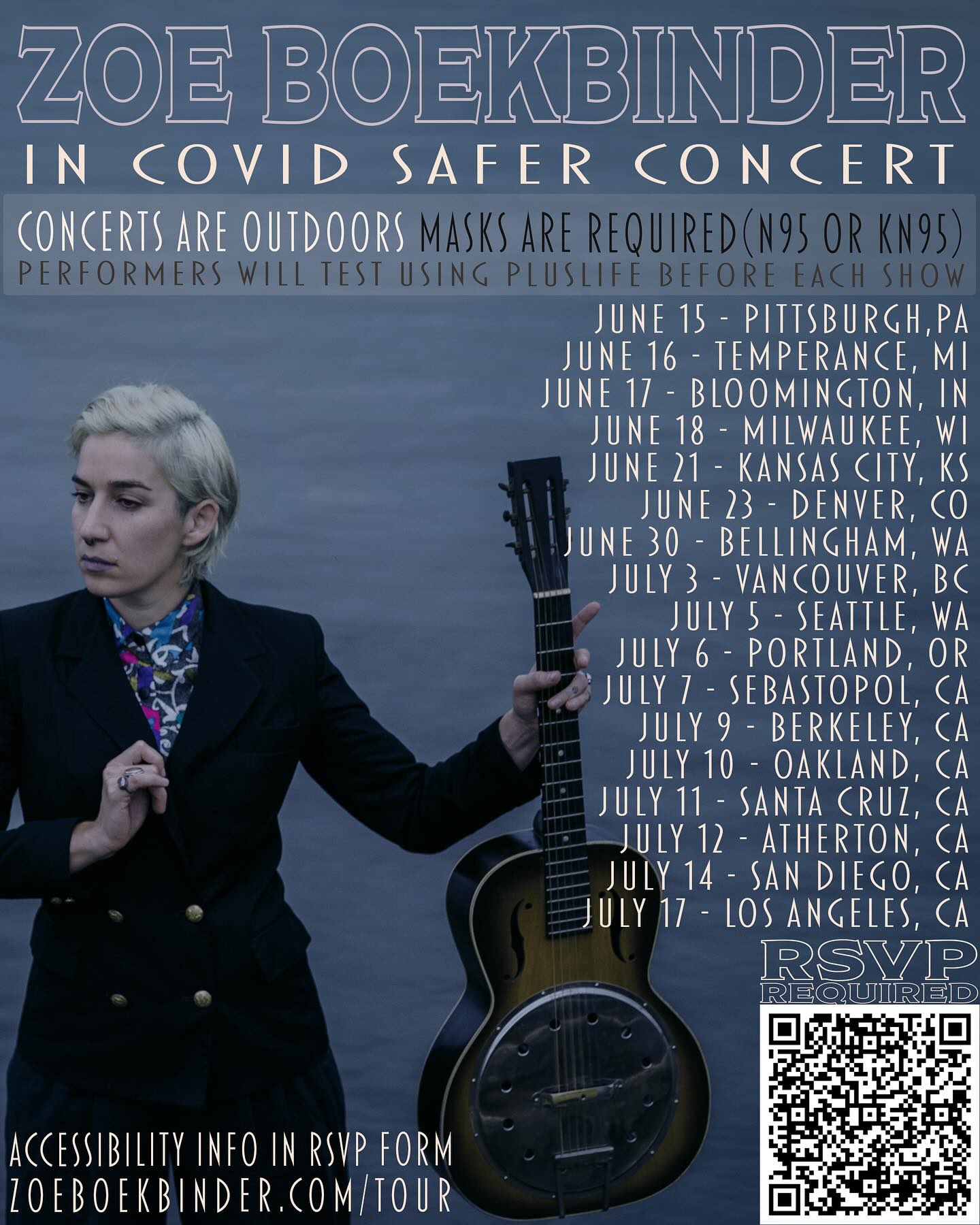
Visit Zeo Boekbinder’s website here
RSVP to Zeo Boekbinder’s shows in Berkeley and Oakland here
Listen to the Prison Music Project here


